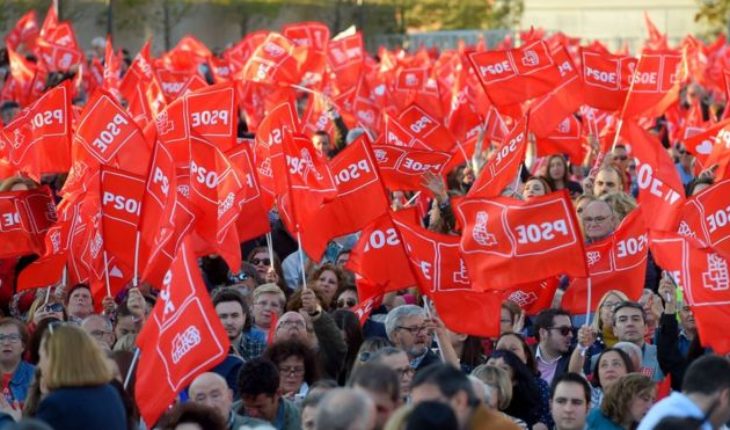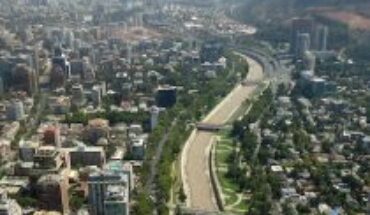In the last Spanish general election, the centenary Spanish Socialist Workers ‘ Party (PSOE) achieved two goal Tivos Keys: Win them, making the best position for the formation of the next government, with Pedro Sanchez at the head; And, at the same time, to tip the most significant defeat that has been the right in recent decades, which marginalized the extremism of that sector. By the way, this feat cannot be explained monocausally, nor exported to other realities; However, in this process, the party and its leader were able to implement a strategy that should be noted in the face of the future challenges of Chilean socialism.
The PSOE is the party that has ruled Spain the most since the establishment of its current democratic regime, in three different periods: from 1982 to 1996, from 2004 to 2011 and from 2018 to 2019; To this we must add their territorial presence in the different levels of government that exist in the state of the autonomy. In short, it is a party that has managed to be successful electorally, govern stably and enabling its programs, fulfilling a role of modernization of the Spanish society. However, between 2011 and the last election had suffered the worst debacle of its history, losing the government, votes, seats and militants.
This debacle has been studied and measured, its main factors being the cost of governing the economic crisis of 2008 and having adopted economic policies contrary to its discourse and incomprehensible to its electorate; The emergence of new political actors that removed voters; The loss of ideological credibility and, as a consequence, its leaders.
Although Rodríguez Zapatero had initiated a process of generational renewal and abandonment of the thesis of the so-called “Third Way”; The first was led by the former partisan elite, i.e., “from Above”; While the second was contradicted in the facts by the policies (neo-liberal, inspired by the consensus imposed from Brussels) that implemented after the economic crisis of 2008. This last factor was decisive: in the successive years half of the vote was lost, of which important part did not return to the polls in years or ended up translating in support to the emergent we can.
In this scenario, what actions did Pedro Sánchez and his party undertake that are interesting to highlight? As we have said, the causes are multiple, but we are interested in highlighting two concrete lines of action: First, he regained left and moderate electorate, making his social discourse credible and understanding with the left to propel it; Second, it promoted a generational exchange, of which it is the main exponent.
The turn to the left is constituted, in turn, by several elements: a social program is promoted and implemented outside the coordinates of the “Third Way”, the historical increase of the minimum wage and the budgets with a marked social accent are the best examples; Demands of the Spanish feminist movement are assumed; And the political understanding with the various lefts, among others, is privileged. His electorate again saw that the word “socialism” meant what he understood.
On the other hand, there was also a marked generational exchange, moving to the forefront of young people and women who assumed spokespersons and candidacies. All this, in a process of mobilization of all the partisan apparatus, committed with the new leader-whom they had known before, when it traveled every corner of the country, staying in the houses of his companions and comrades-who could defeat the one who had been Designated “From Above” by the former “barons”, as the heiress.
Although Chile is not Spain, and local socialism has its own rich tradition that is rooted in the characteristics of the Chilean people and its history, the experience of what happened with the PSOE is useful to reflect on the future challenges of the party Socialist of Chile (PSCh).
Firstly, it seems that the path of the socialist, Labour and Social Democrat parties is no other than the socialism itself that brought them to be born, that is to say, to reaffirm their identity. By the way, this means offering a program consistent with that, with a marked accent on redistributive and protective public policies of the working class, especially the most postponed of globalization. In particular, with regard to the Chilean case, the PSCh must reaffirm its historical democratic commitment and, above all, democratizing, that is, transforming the material conditions to move towards the construction of an effectively egalitarian society .
On the other hand, the mere promise consistent with identity is not enough. It is also necessary to be able to give guarantees of effective materialization, without “nuances” that disfigure the objectives. In other words, it makes necessary an understanding with all those democratizing forces that make viable a government able to implement, with guarantees of governability, a transformative program at the service of the majorities. The way to install this program must be to rediscover the sectors of society that have driven the historical becoming of democratic socialism: the working class, ethnic and sexual minorities, feminists, native peoples and all Excluded. That is to say, construction must be done from below, from the territories, in tune with social movements and organizations.
In the Chilean case, the foregoing would materialize in insisting on the need to reinvigorate the constituent process, which allows a new democratic constitution to be achieved in its content and gestation, which does not impede, but allows the bases of a society Effectively egalitarian. In conjunction with the foregoing, this programme must contain security in the face of a world of uncertainties: the creation of a robust social protection system must be put in order to stop new forms of job precarization, to promote measures to rebalance the Relations between capital and labour, strengthening public education and advancing towards a redistributive tax system and enabling the responsible financing of social needs. But new challenges, such as climate change and environmental protection, must also be dealt with: the economic system not only generates inequality, but also puts the planet itself at risk and, with it, the very survival of humanity.
Democratic socialism must also assume feminism as an inherent expression of its historical commitment to freedom and effective equality. Only then will a society be achieved in which all talents can be developed and freely expressed, so that the real inclusion of all people, regardless of sex, sexual orientation or gender identity, is a powerful tool to drive The development.
Second, the PSCh requires a strong impulse of generational renewal. This must be egalitarian and equal, that is to say, to allow them to be the talents, the militant ethical commitment and the linkage with the territorial reality that determines this process, but taking care not to reproduce social determinants that prevent de facto the Equality, so it is necessary to promote, in particular, the participation of postponed women and minorities.
The foregoing does not imply, incidentally, incurring an internal efebocracia, on the contrary, the experience of previous generations should create new spaces for interaction, exchange and creation of socialist solidarity. The PSCh has experienced various moments of the country, from the government, the opposition or the resistance, with successes and errors, lights and shadows; This allows the previous political experience to be one of its richest instruments. Indeed, the combination of the best of our historical tables, emerging paintings, and new paintings must be the tonic for facing the next challenges.
In short, the risk of increasing the extreme right among the popular sectors should alert and, there, the path seems to be one: a profound generational exchange in which the PSCh is rediscovered with the Chilean socialism.
The content poured in this opinion column is the sole responsibility of its author, and does not necessarily reflect the editorial line or position of the counter.





